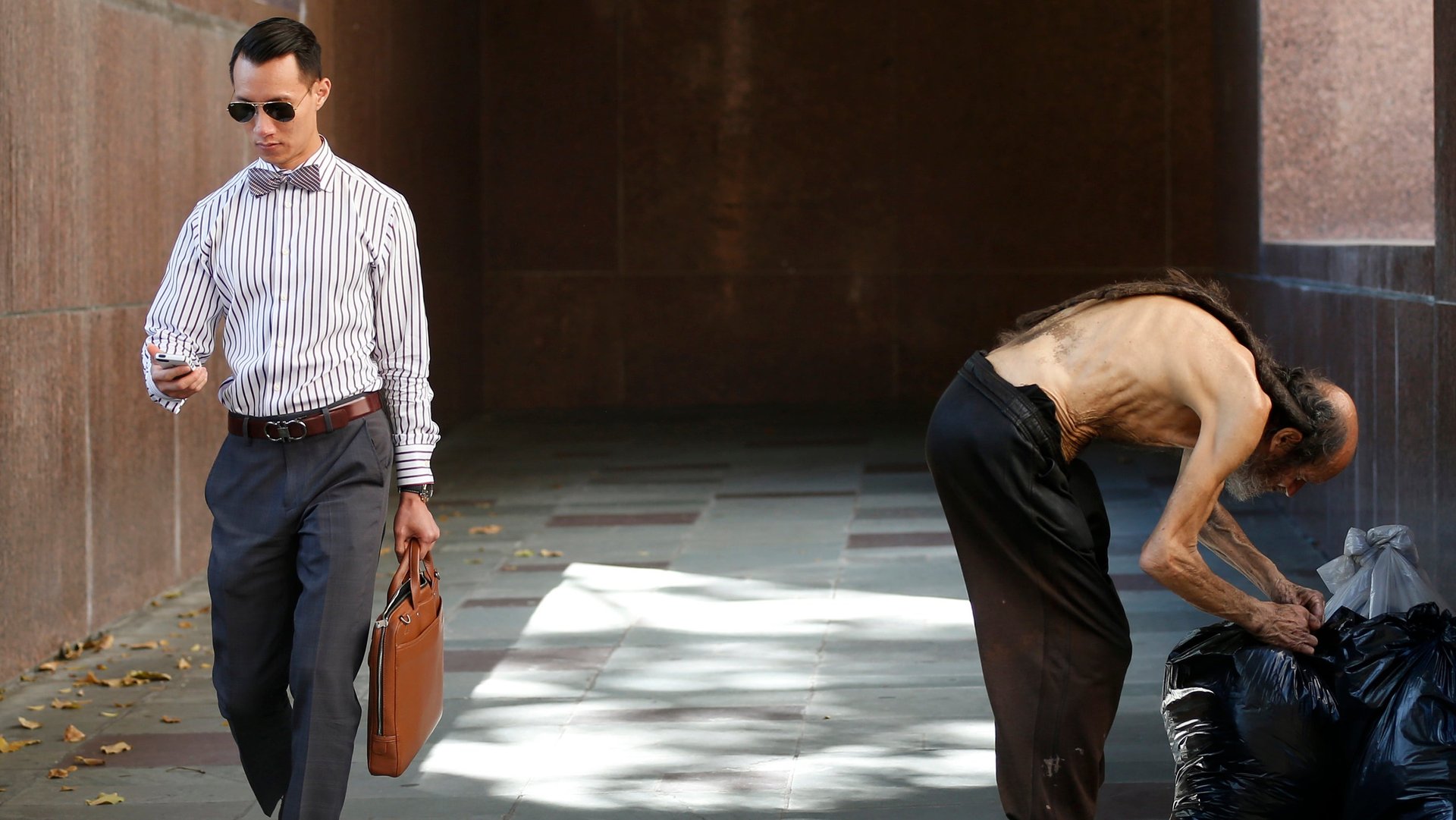Our obsession with personal branding reveals a dark truth about the future of work
If you’re looking for a new job, the internet is full of helpful tips. “7 Things You Can Do to Build an Awesome Personal Brand!” one headline declares. ”6 Branding Tips for Job Seekers!” blares another. After all, in this fast-paced economy, you can’t just apply for new positions; you need to brand yourself.


If you’re looking for a new job, the internet is full of helpful tips. “7 Things You Can Do to Build an Awesome Personal Brand!” one headline declares. ”6 Branding Tips for Job Seekers!” blares another. After all, in this fast-paced economy, you can’t just apply for new positions; you need to brand yourself.
Competitive job seekers need more than a stellar resume and strong references; they must be able to package themselves like Coca Cola. They need to be their own instantly recognizable service, like Amazon or Google. People with effective personal brands attract job offers; those without languish in brand-less failure.
Or at least, that’s what many job-seekers are being told. Ilana Gershon, however, is skeptical. Gershon, a professor of anthropology at the University of Indiana, Bloomington, spent a year interviewing and observing job seekers and employers in Silicon Valley and around the US. Her new book, Down and Out in the New Economy: How People Find (Or Don’t Find) Work Today explains that branding is largely a boondoggle advanced by inspirational speakers and job trainers. It doesn’t help people get jobs. But it does make us more accepting of an increasingly dehumanized job market that treats workers as products rather than people.
For one thing, the employers and hiring managers Gershon talked to didn’t look for, or even notice, personal branding. Gershon concluded that despite all the hype, finding your personal brand doesn’t help job-seekers. Its primary function is to make people feel like they have control over their working lives in an increasingly hostile job landscape.
According to Gershon, the concept of personal branding developed over the last 30 years as the concept of work itself became more precarious. Union membership has contracted. The number of hours in the average work week has risen; full-time adult workers spend 47 hours a week working on average, which is up an hour and a half from ten years ago. Today, millennials average four jobs in their first 10 years out of college, twice as many as the average for the generation before them. Workplaces are demanding more time and offering fewer protections and stability.
This change has a lot to do with the relationship between employer and employee. According to Gershon, in earlier eras, employees saw their relationship with an employer as a kind of loan of time and skills. You rented out your services for a certain period, and then the rest of the day was your own. Increasingly, however, people have begun to see themselves as individual businesses. And the employer-employee relationship is starting to feel more and more like a contract between two business enterprises. Meanwhile, companies like Uber, in which employees are all independent contractors, present themselves as the ideal future of work (though Uber looks less and less ideal all the time.)
In this context, branding, Gershon argues, isn’t a way to get a job. Rather it’s a way to reconcile oneself to an economy that provides less and less security. Without unions and without job security, employment is precarious and life outside work withers away. Gershon explains that, “The self as business is a metaphor that people developed to think through how they can operate in a space which is completely defined by market logics.”
This way of thinking can help people feel like they fit into the current market. But it has its downsides, too—plenty of them. The main problem with branding yourself as a business, Gershon says, is relatively simple: “People are human beings with physical needs and with personal lives outside of the business,” she says. “They are not always on; they have a personal life.”
When people are turned into brands, they become responsible to their brand—and to their bosses—all the time, everywhere. Social media posts showing a teacher enjoying an after-work cocktail could endanger her employment. Tweeting a controversial opinion can get you in trouble if said opinion is antithetical to your personal brand. There’s a reason massive companies like Disney hire an army of public relations people to manage its brand—staying on-message all the time is hard work.
Visualizing oneself as a brand also makes worker solidarity more difficult, Gershon says. Brands compete with each other; they don’t come together to demand higher pay, or decent health care, or reasonable hours. When people think of themselves as brands, they are speaking the language of reputation, appearance, and marketing. It’s hard to switch from that to a discussion of moral responsibility.
“I would love to see another metaphor about what work has to offer become dominant,” Gershon says. “Maybe instead of thinking about people as property or businesses, we could think of people as craftsman. And that way, people in the same kind of work could see themselves as facing the same structural issues.” This tweak might allow people to focus on group organizing, rather than self-packaging.
At the very least, readers of Gershon’s book should come away secure in the knowledge that branding yourself is mostly hooey. It wastes your time, and it doesn’t usually help you get a job. Human beings aren’t brands. Rather than spending all their time trying to think about what distinguishes them from the pack, workers might be better served thinking about what brings them together.